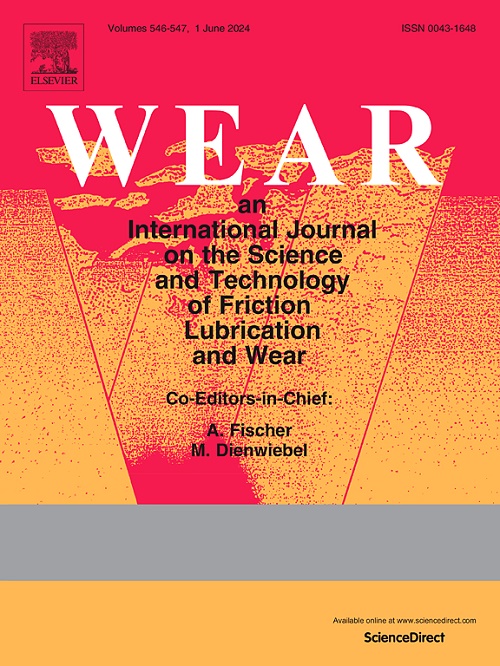Tribological performance of borided tool steel with minimum bio-lubrication for sheet metal forming applications
IF 5.3
1区 工程技术
Q1 ENGINEERING, MECHANICAL
引用次数: 0
Abstract
AISI D2 steel is widely used in manufacturing dies for sheet forming operations, where lubricants are essential to prevent wear. With a growing focus on reducing the environmental impact of manufacturing, there is increasing interest in exploring alternative lubrication methods to minimize the environmental footprint. This study examines the tribological performance of borided AISI D2 tool steel lubricated with a minimal quantity of biodegradable oil. Pin-on-disk tests were conducted to evaluate the tribological performance of borided and unborided AISI D2 tool steel under lubricated conditions using a mineral base oil and Jatropha oil. Cylindrical pins of AA 6061 T6 aluminum alloy and AISI 304 stainless steel were used as counterparts. Surface damage analyses were performed using scanning electron microscopy (SEM), energy-dispersive X-ray spectroscopy (EDS) and optical profilometry. The results indicate that the boriding treatment reduced the mass loss of stainless steel pins by 18 % and aluminum pins by 30 % when lubricated with neat mineral oil. Furthermore, the biolubricant significantly lowered the coefficient of friction (CoF) between aluminum and borided AISI D2 steel, while reducing the mass loss of stainless steel and aluminum by 50 % and 70 %, respectively.
求助全文
约1分钟内获得全文
求助全文
来源期刊

Wear
工程技术-材料科学:综合
CiteScore
8.80
自引率
8.00%
发文量
280
审稿时长
47 days
期刊介绍:
Wear journal is dedicated to the advancement of basic and applied knowledge concerning the nature of wear of materials. Broadly, topics of interest range from development of fundamental understanding of the mechanisms of wear to innovative solutions to practical engineering problems. Authors of experimental studies are expected to comment on the repeatability of the data, and whenever possible, conduct multiple measurements under similar testing conditions. Further, Wear embraces the highest standards of professional ethics, and the detection of matching content, either in written or graphical form, from other publications by the current authors or by others, may result in rejection.
 求助内容:
求助内容: 应助结果提醒方式:
应助结果提醒方式:


